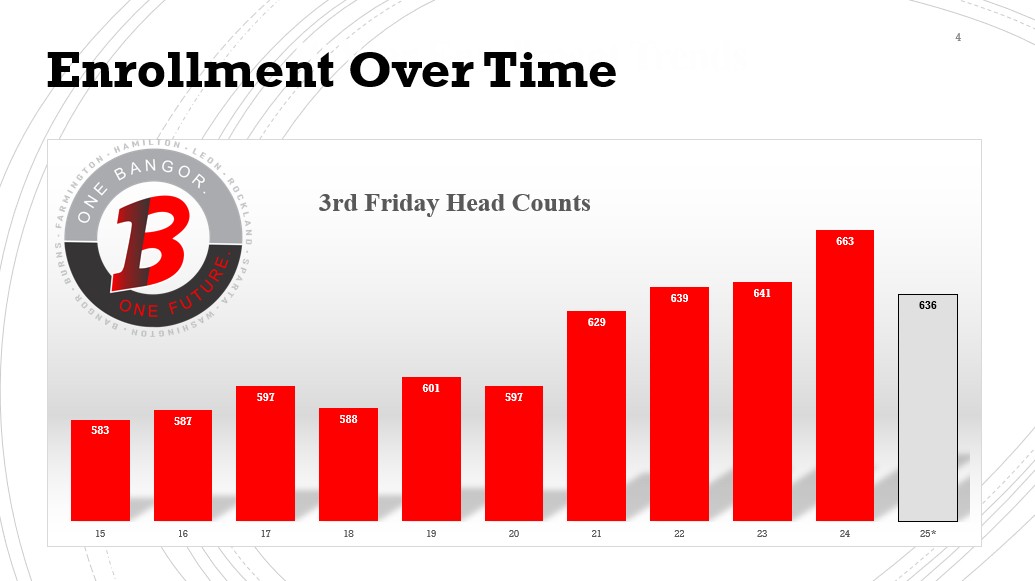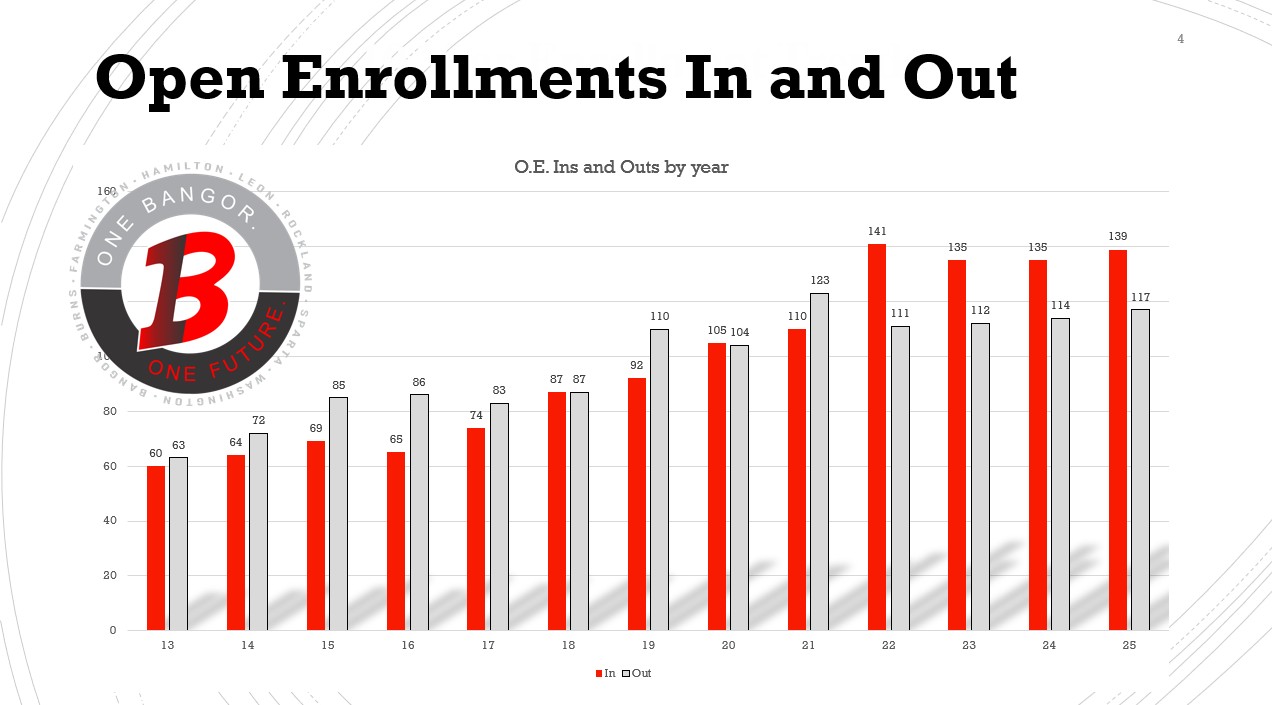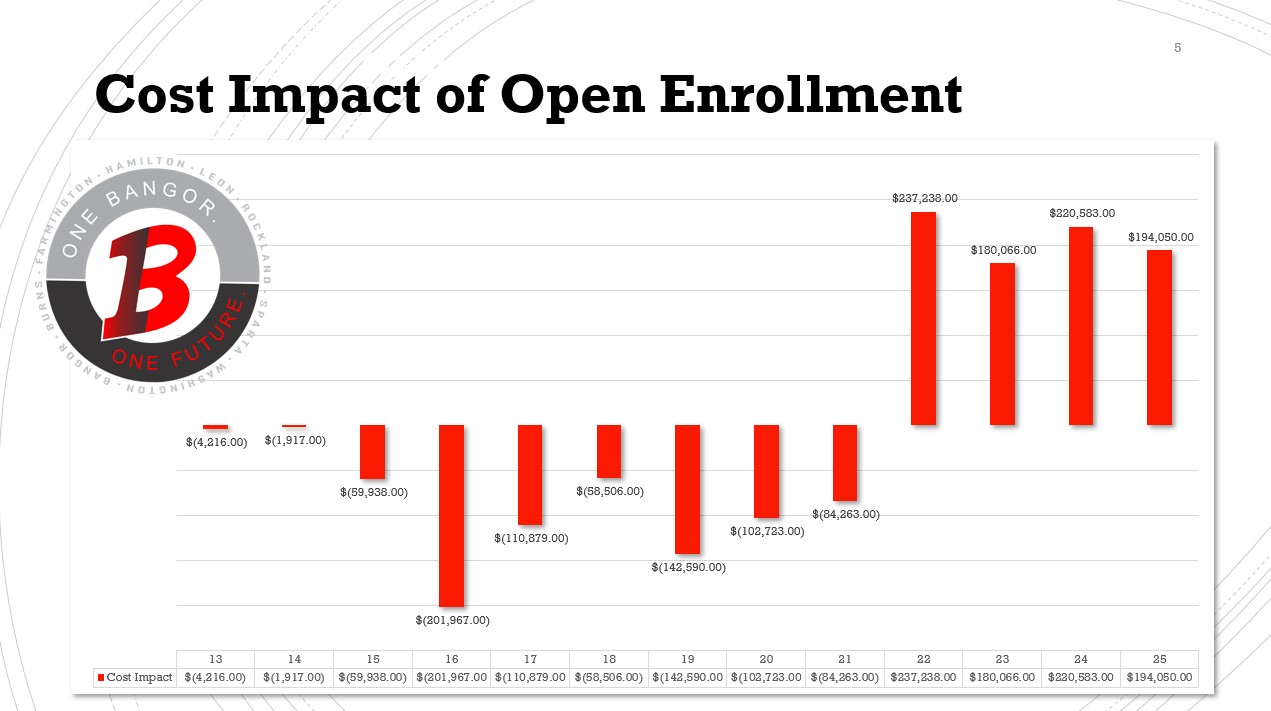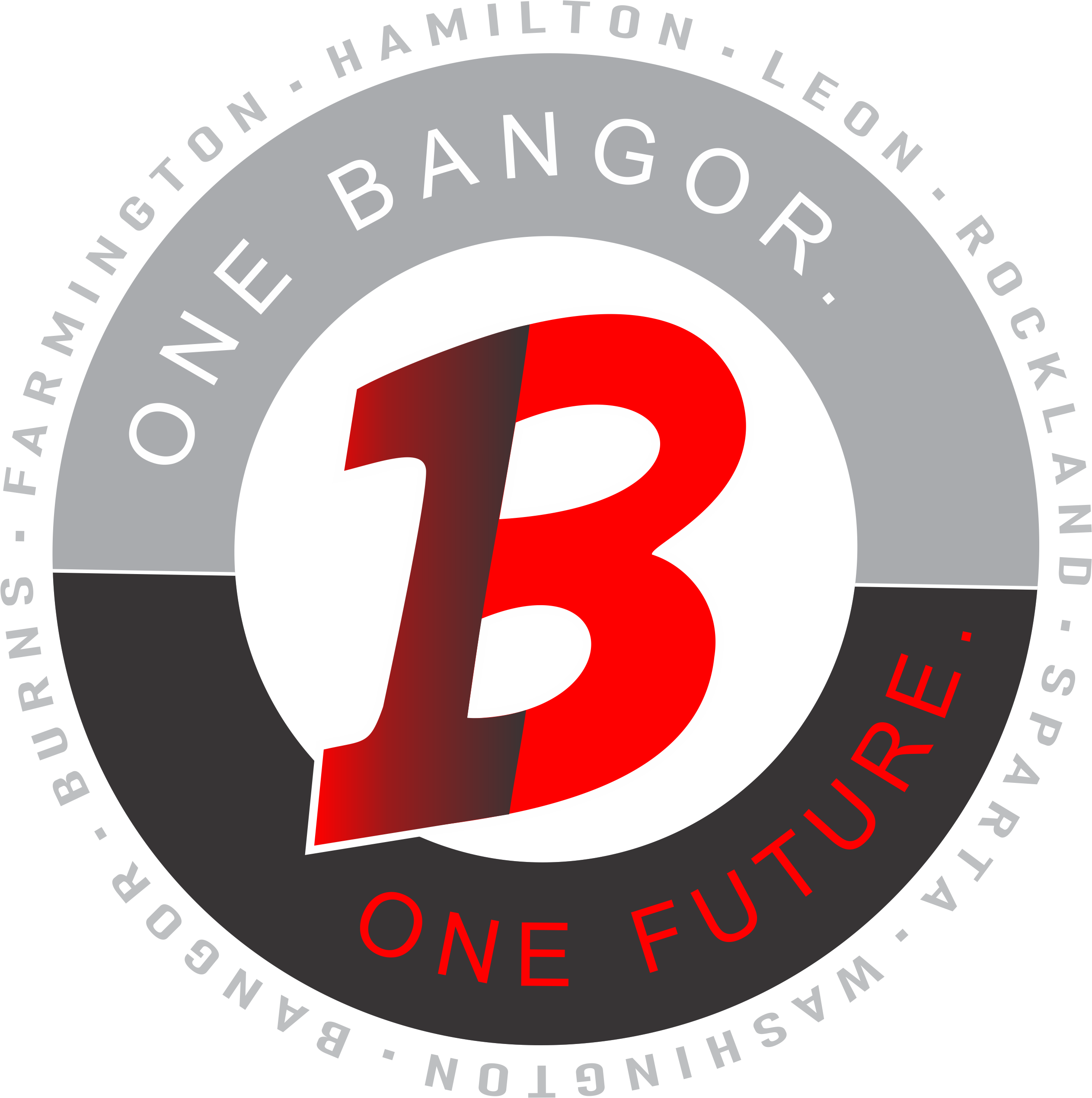As a District, we recognize that we must find a balance when funding our schools.
This graphic depicts the competing factors when prioritizing the needs of the District.
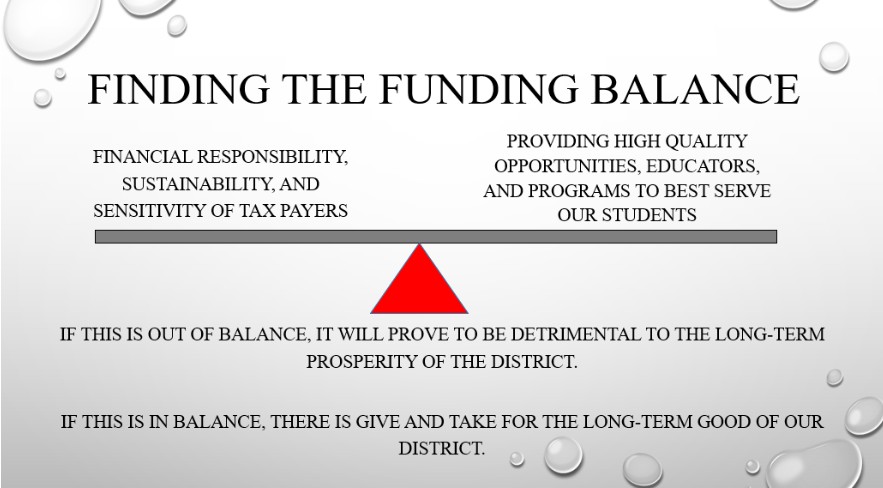
Question for April 1, 2025
Approved by Board of Education on 1/15/25
Please note that the question has been changed from recurring to non-recurring based on the feedback that we received following the November vote.
Shall the School District of Bangor, La Crosse and Monroe Counties, Wisconsin be authorized to exceed the revenue limit specified in Section 121.91, Wisconsin Statutes, by $900,000 per year for three years, beginning with the 2025-2026 school year and ending with the 2027-2028 school year, for non-recurring purposes?
District Approved Referenda since 2007
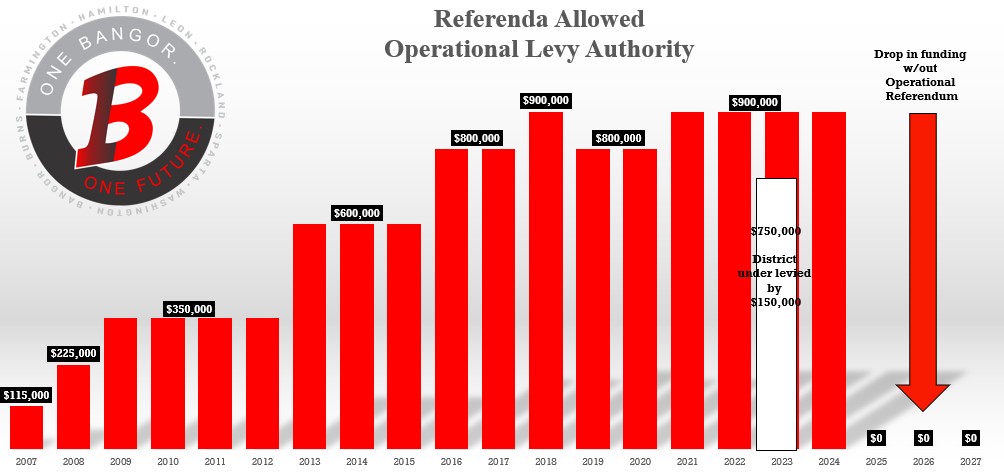
Q&A
Last updated 3/13/25
What is an operational referendum?
An operational referendum provides school districts additional, voter approved, tax levy authority. Referenda have become essential for schools to successfully operate since revenue caps were put into place in the mid 90s. The need for an operational referendum has been created through the gaps in the state funding model.
All Wisconsin schools are subject to a revenue limit, which places a cap on the amount of money that can be raised through state aid and property taxes. This revenue limit is fixed and does not adjust to inflation rates. As a result, the School District of Bangor does not receive enough revenue to adequately fund programs and services for students.
Is Bangor currently operating with referendum support?
Bangor is currently operating under an operational referendum and has been doing so since 2007. The current referendum amount is $900,000 per year. The current referendum was approved in the spring of 2021 and is set to expire June 30, 2025.
The district is not alone in recognizing and addressing these challenges through referendum. In the last five years, Wisconsin's 421 school districts have proposed 311 operational referendums to their communities. At this time, over 100 school districts in the state of Wisconsin depend on voter approved referendum support for at least 10% of their total operational budget.
What does the operational referendum fund?
After 18 years of operating with a referendum, it is difficult to pinpoint exactly what the referendum supports. The District's total operational budget is roughly $11,000,000 per year. The District has begun the work of identifying areas where cuts could would need to be made and it will take far more than a little "belt tightening" to make up $900,000 per year.
A Failed referendum would result in a reduction of up to 11 positions throughout the district resulting in significantly larger class sizes and many lost resources and opportunities for students. Most impacted areas would likely include..
Larger class sizes 4k-2
Reduced behavioral and academic support for students 4k-12
Elimination of Ag Education at the MS/HS level
Increased class sizes and few academic offerings grades 6-12
Reinstatement of school fees for all students.
Freeze or deferment of operational costs in the areas of personnel, transportation, maintenance, technology, and instructional resources resulting in deficits that will carry forward for years to come.
Didn't the community just pass a referendum?
The operational referendum that was on the November 5, 2024 ballot failed by approximately 50 votes. While that vote did not affect the current 2024-2025 school year, this April question will absolutely affect the 2025-2026 school year and beyond.
Our last operational referendum was passed in the spring of 2021 and is set to expire in 2025. The community also passed a capital referendum in fall of 2022 with the sole purpose of adding onto and remodeling our three district buildings. The funds from the capital referendum can not be used for operational purposes. One way that the capitol improvements have helped the most is that they have taken care of years of deferred maintenance that will provide annual relief to the operational budget for many years. While the funds and purposes are separate, the District has continued to plan for both the operational and capital expenses maintaining our commitment to a stable to declining mill rate.
If the 2022 Capital Referendum would not have passed, would the district still be asking for this operational referendum?
The answer is absolutely yes. In reality, without the support that we had with the capital referendum, the dollar amount for this operational referendum would likely need to be substantially higher so that would could address major mechanical upgrades that were needed and taken care of with the capitol referendum. While funds from the capital can not be used for operational purposes, funds from an operational referendum can and are used for capitol expenses. There are many ongoing costs with taking care of our facilities and these annual costs are part of our operational costs.
How does the School Board and District ensure that our tax dollars are being spent wisely?
The School District of Bangor has a long history of sound financial decision making that is a byproduct of ongoing planning for the future. While many school districts across the state used one time rescue dollars over the past few years to meet operational needs, Bangor used as much of the money as possible on one time purchases avoiding what much of the state has seen and referred to as a fiscal cliff. Looking ahead, planning for facility improvements when the timing was right to maintain the mill rate, and to avoid major expense in the future is just a small step in the stewardship of our community resources. The District has taken steps to control the ever rising costs of insurance, and has made purchases to improve the efficiency of our custodial staff so that they can cover the ground needed with our facility additions. It takes resources to provide a safe and functional educational experience for our students and our Board is focused on strategically prioritizing those resources at all times. Bangor Pride runs deep and drives our district to be the best that it can be each and every day.
How will continuing to support an operational referendum affect my taxes?
Below is a graph of the projected mill rate. In that graph you can see what we anticipate the mill rate (or cost per thousand dollars of property value) will decrease each of the three years of the referendum from our current $9.39 to a projected $9.24.
As a district, we have worked hard for many years, through multiple Board changes, and changes to administration, to maintain a stable to declining mill rate (cost per $1,000 of property value) for the community. Through multiple referendums the mill rate has continued to show a steady decline. The mill rate is the part of the equation that the District can control. During that same time, people across the state and in the Bangor School District community have seen their property values climb. Depending on your municipality and how re-alignment of fair market value of properties is adjusted, tax impacts fluctuate throughout the district. In addition to home sale prices, new properties being built in the district each year come in to play and help distribute the levy over all of the property value in the district. It is important to note that a successful referendum does not set the mill rate, instead it provides the district additional levying authority and ultimately the School Board sets the levy each year. As an example of the Board's commitment to a stable mill rate, the District under levied for the 23-24 school year by $150,000. By doing this we maintained the mill rate and still were able to meet operational costs for the year.
Why would the District come back to the community for support of an operational referendum just four months after being told no?
Since the failure of the November referendum the needs have not changed for the district. As we look at the budget for the 2025-2026 school year and beyond $900,000 per year does not solve all of our problems, but it provides us with enough stability that we can continue to provide the high quality opportunities that we offer to our students .
We have sought out feedback from our community and heard loud and clear that the recurring question in November left people feeling uncomfortable. We also heard that people did not really understand what they were voting on. In response to these concerns, we have changed the question from a recurring question to a non-recurring question and have made a greater effort to inform our community about the question and why we need the continued support.
For some in our community, even though we have changed the question and increased our communication they still may not understand why we would ask again if we were told no in November. For the School District of Bangor, we respond to that question with a simple message. We believe that the investment that we are asking our community to support is an investment into the future of our children and community. We also believe that our children and community are worth that investment and are committed to doing our very best to serve our community well into the future.
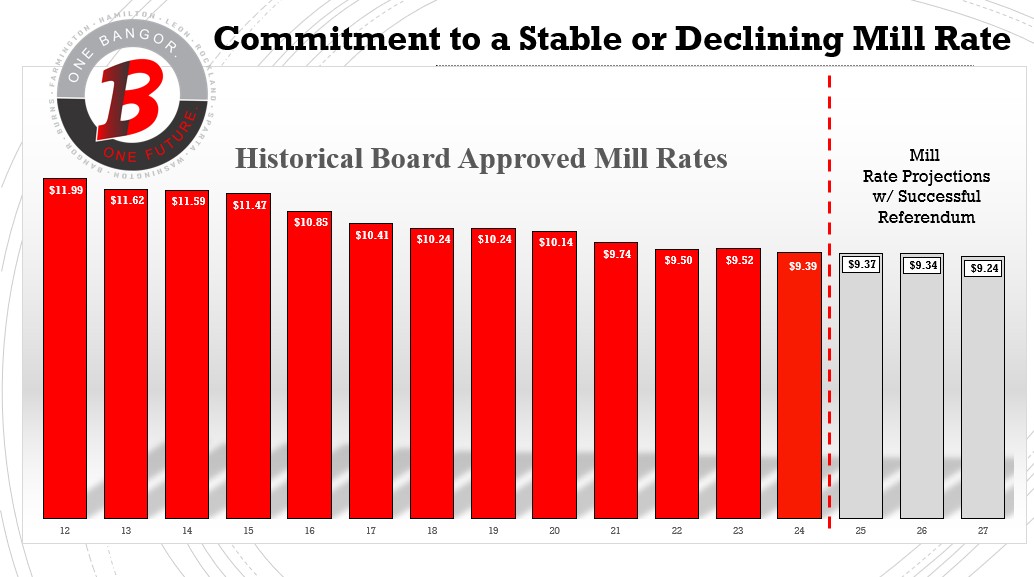
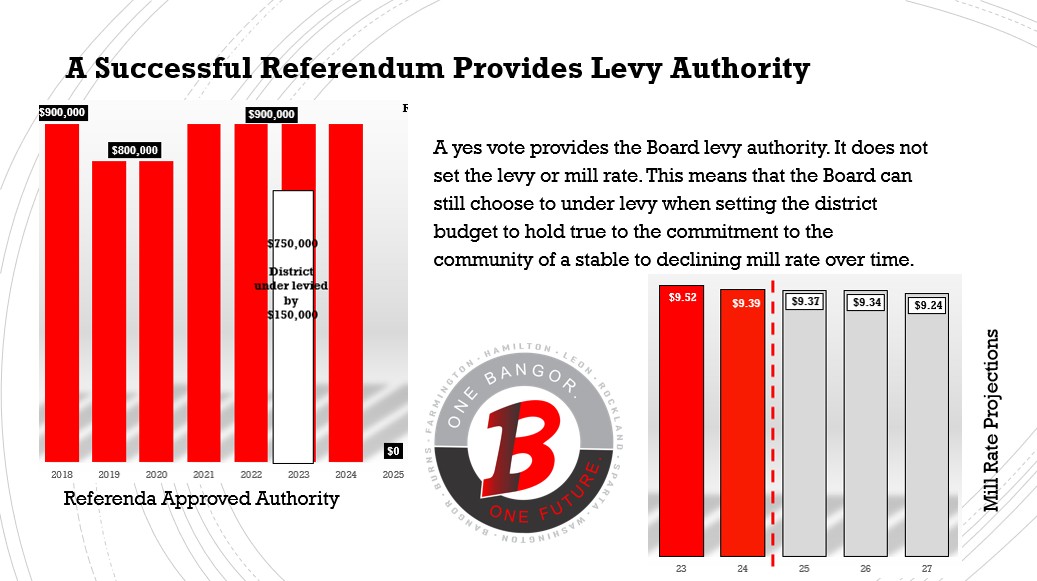
Enrollment Trends
The slides below show district enrollment over time as well as the impact of open enrollment over time. These trends are headed in a positive direction for our district.
